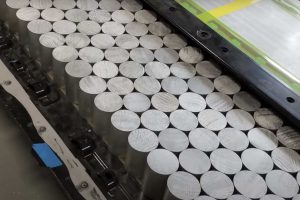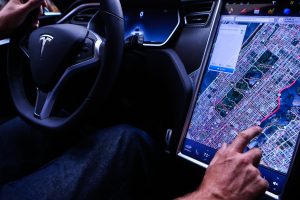- 🚗 State departments of transportation (DOTs) can play a key role in shifting to clean transportation.
- 🛣️ Expanding access to mobility choices and reducing vehicle miles traveled (VMT) can save lives, money, and reduce carbon emissions.
- 🌎 Despite efforts to improve car efficiency, transportation pollution remains a significant issue in the U.S.
- 🏞️ States have a historic opportunity to use federal funding to invest in cleaner, safer, and more affordable mobility options.
- 🚲 Promoting alternatives like walking, cycling, and micro-mobility can have wide-ranging benefits, including saving lives and reducing healthcare costs.
- 💰Reducing VMT not only helps the climate but also creates economic benefits, such as saving on automotive costs and creating jobs.
- 🎯 The upcoming rule from the US Department of Transportation requires state DOTs to set pollution reduction targets for the National Highway System, urging them to act promptly.
In an era where climate change is at the forefront of global concerns, the role of state departments of transportation (DOTs) in steering the transition towards clean transportation cannot be overstated. This blog post delves into the pivotal role these departments play, exploring the potential impact of their decisions on lives, economies, and the environment.
The Crucial Role of State DOTs
State DOTs stand at the crossroads of change, uniquely positioned to lead the charge towards sustainable transportation. Here’s how their strategic decisions can shape the future:
- Expanding Mobility Choices Saves Lives and Money
- 🚗 State DOTs can be catalysts for change by expanding access to diverse mobility choices.
- 🛣️ Reducing Vehicle Miles Traveled (VMT) not only addresses congestion but also has the potential to save thousands of lives annually and cut billions in costs.
- The Persistent Challenge of Transportation Pollution
- 🌎 Despite advancements in car efficiency, transportation pollution remains a formidable challenge in the U.S.
- 🏞️ State DOTs have an unprecedented opportunity to address this by investing in cleaner, safer, and more affordable transportation options.
- Historic Federal Funding: A Turning Point
- 🚲 With historic federal funding at their disposal, state DOTs can revolutionize transportation infrastructure.
- 💰 Investing wisely in cleaner alternatives can lead to economic benefits, creating jobs and reducing the financial burden on households.
- Promoting Alternatives for Healthier Communities
- 🚲 Walking, cycling, and micro-mobility options can bring about a paradigm shift in community health.
- 💰 Beyond monetary savings, the health benefits of reduced VMT are immeasurable, preventing fatalities and improving overall well-being.
- The Game-Changing US Department of Transportation Rule
- 🎯 The upcoming rule from the US Department of Transportation sets pollution reduction targets for the National Highway System.
- 🌐 Urging state DOTs to act promptly, this rule is a pivotal moment that can steer transportation policies towards a greener and more sustainable future.





